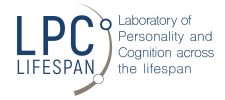This project builds on over 10 years of data collection on participants from the California Families Project to identify mechanisms of cognitive aging across middle adulthood among Mexican-origin adults. We are examining the longitudinal association between socioeconomic (e.g., education, financial hardship), personality (e.g., neuroticism, conscientiousness), social (e.g., discrimination, social support), and acculturation (e.g., cultural values, acculturative stress) factors on cognitive function in midlife Hispanic/Latino adults, and as well as the behavioral (e.g., physical inactivity, smoking), psychosocial (e.g., depressive symptoms, delay discounting), and physiological (e.g., inflammation, cellular biomarkers) mechanisms that explain these associations.

Midlife cognitive aging in Hispanic/Latinos: Predictors and mechanisms of decline
Purpose
This research will lead to new knowledge about midlife predictors of cognitive aging, identify social determinants and pathways that create and sustain health disparities for Hispanic/Latino populations, and point to new prevention and intervention targets for promoting healthy cognitive aging in midlife and beyond.
Funding
R01AG060164



